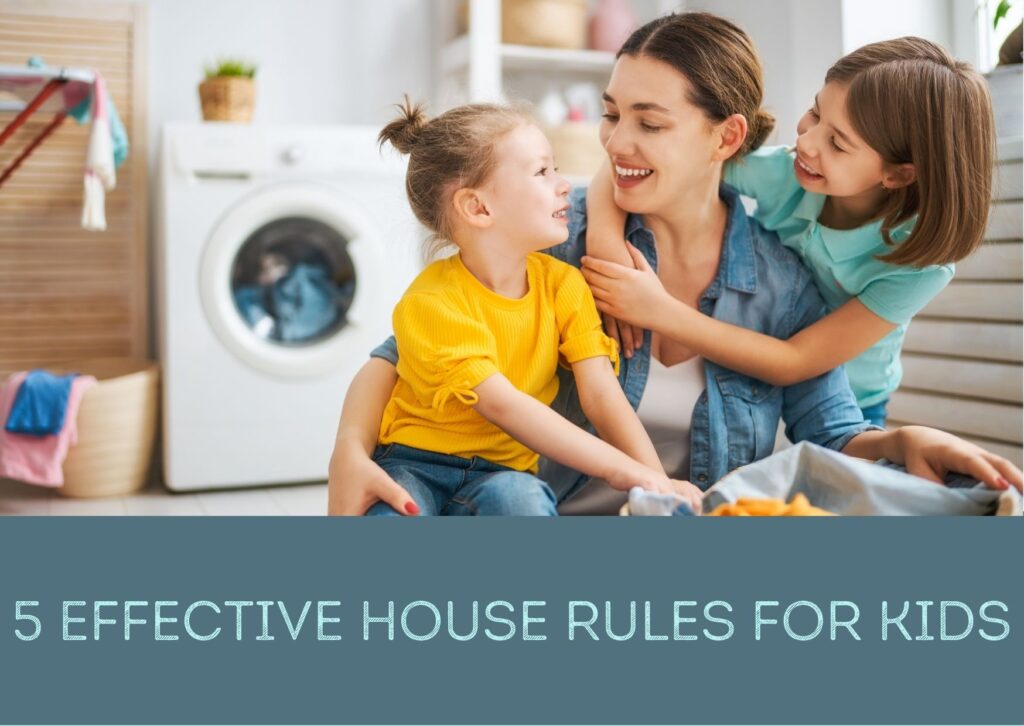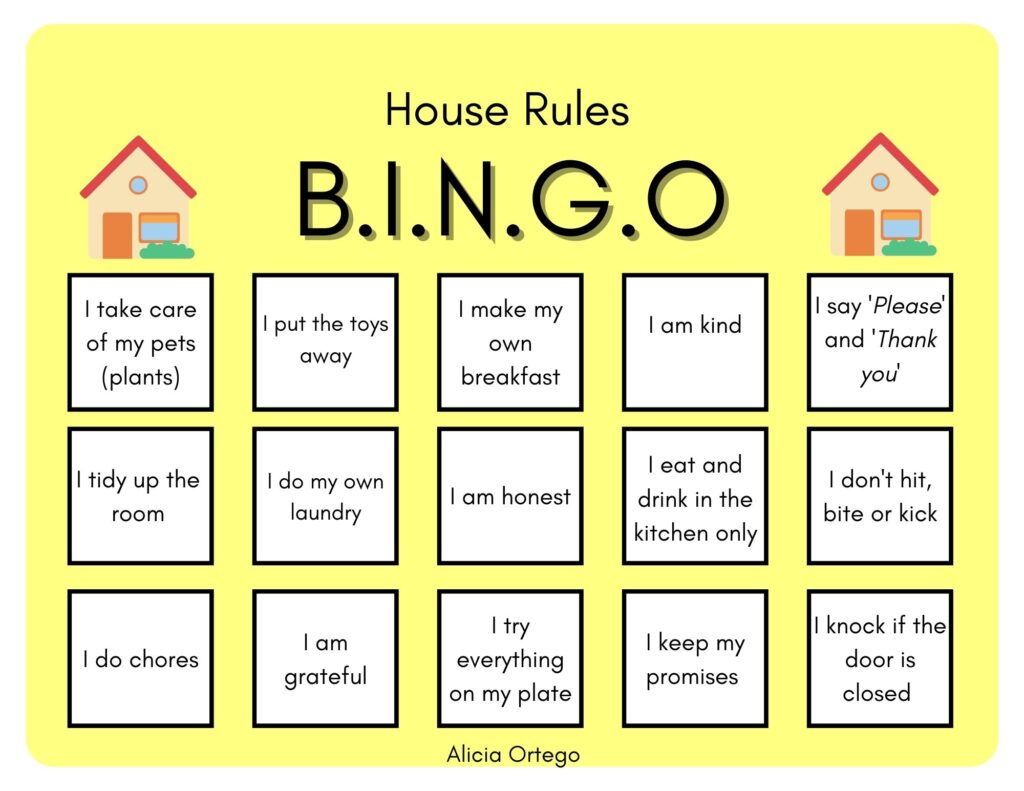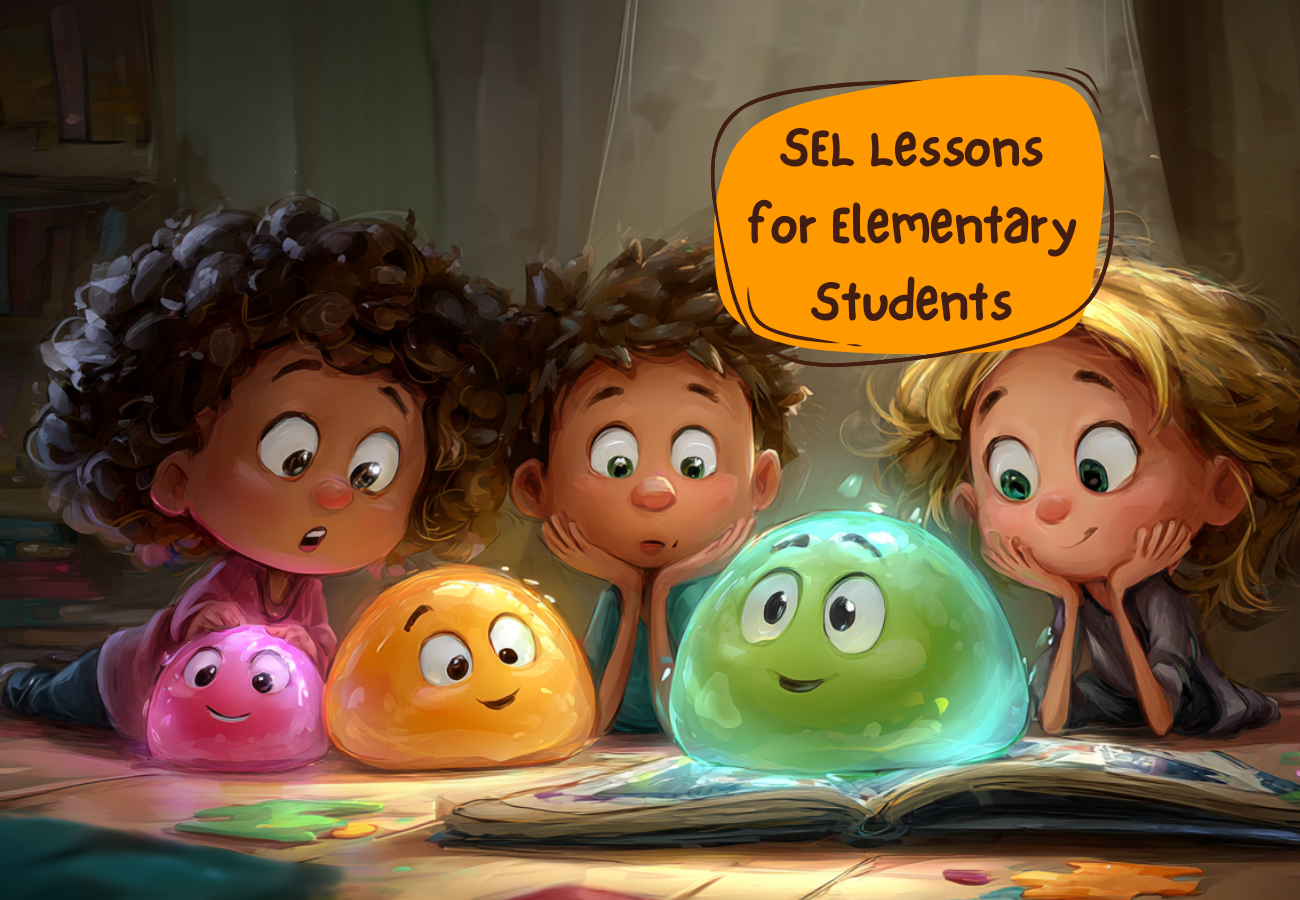5 Effective House Rules for Kids (+Bonus PDF)

Imposing rules at home may seem a little bit tyrannic. Yet, if you consider the whole family’s interests, it makes sense. Fair household rules set clear limits beyond which one mustn’t go. Children now have an accurate idea of the behavior that is expected of them. Rules should be aimed at the well-being of both parents and children.
Why Are Rules Important?
Imagine that your kid starts jumping on furniture after spending a few days at Grandma’s house. It was fine at the grannie’s place, but you don’t appreciate such behavior. Or, take, for example, the situation when your cousin lets children eat in their rooms. After a week of being his guest, your daughter grasps a plate and enters her room. Would you like her always to behave the same way? If not, it’s high time to set house rules for kids.
Make up clear rules and introduce them to your children. It is important to stick to them personally. Otherwise, kids will rightfully consider them dishonest. Next time you ground your little one for jumping on the furniture, you will have a reason to refer.
Family rules for kids don’t leave room for ambiguity. They help a child feel safe because he knows exactly what’s allowed and what`s not. For that matter, here’s my selection of 5 effective rules for kids at home.
Ask Permission
Make clear what actions children can perform on their own. For example, they don’t need to ask your permission to eat cake, but they should let you know when they want to drink sparkling water. Come up with a list of actions your children should coordinate with you. Though, most of the don’ts they already know, remind them again. However, don`t forget to praise kids when they follow the household rules. Use reward charts or tell them from time to time that you appreciate them being obedient.
Another important point is to ask your kids` permission, too. Sure, you can leave home whenever you want. Still, knock before you enter your child’s room and ask whether you can take his toys and other personal belongings.
Tell the Truth
The parents need to be fair. It can prevent both small disappointments and huge mistakes. You know what a relief it is to have a trusting relationship with a kid. One should try hard to build them:
- Be sincere with your child;
- Never punish him for the truth he confesses;
- Don’t criticize him after confession;
- Be supportive and assure your kid that you love him no matter what;
- Don’t be afraid to admit your own mistakes;
- Appreciate their deeds.
The most essential thing is to make your kid believe in the advantages of telling the truth no matter how bitter it could be. Explain to him that being honest with oneself is no less vital.
Clean Up After Yourself
This rule is so hard for some children. To make it work, you should start with yourself. Don’t be lazy to put dirty clothes in the hamper or clean your cup after every drink. Explain to your children that they should put their toys away. They also should wipe the dust, put things in the closet, and do other tasks you assign. Such rules at home teach discipline. Even though they find it boring now, this habit can save much time in adulthood.
Let me give you a tip. Kids often like to clean up after themselves and their pets. In such a way they believe they act like adults. Get a pet to teach your children responsibility.
If your kids have a special book nook, ask them to clean it now and then.
Follow Healthy Habits
The rule is mostly about a daily schedule. For instance, decide when you get to bed and get up. You can go to sleep later than your child. Still, follow the schedule, too. A sample schedule might also include points such as:
- Morning exercises;
- Shared breakfast or dinner;
- Joint play with parents;
- Time to do sport;
- Time to read a book;
- Evening stroll.
These ritual actions form the basis of kids’ healthy development. Moreover, it’s much easier to learn them in childhood than later in adulthood. It may also prevent boys and girls from possible health problems.
It would be much easier and more fun to nurture healthy habits in your kids through a game.
Free Printable House Rules Bingo PDF

Say the Magic Words
Magic words are courtesy words needed for successful communication. According to research about the power of ‘please’, kids who use them leave a pleasant feeling and are more peaceful. Courtesy words are a sign of a responsible person. They also demonstrate a willingness to respect other people and their virtues. Begin with yourself by saying thank you to all family members and other people. Magic words are one of the tools for developing social skills. Furthermore, there is no need to say that a well-behaved person has more perspectives in life.
Family Rules for Kids of Different Ages
Children of all ages can follow the household rules. The difference is only – to what extent?
- 2-3 years old. Kids of this age group cannot stick to the schedule fully. They tend to dream up stories and scatter toys. However, they are extremely strong-willed and stubborn. So, one picked up and placed on a shelf car is already a success.
- 4-5 years old. They already know what permission is and how to say please or never mind. You may set small requirements first.
- 6-8 years old. The schedule is already a daily routine for them. It’s time to use the rules and consequences chart for the home to clarify the requirements and penalties.
- 8-12 years old. If you did a great job, kids like the rules. They understand why it’s important. Your son or daughter might object to some points, but generally, they accept it.
If you introduce them to a chore chart, young kids may be eager to do chores.
Conclusion
Children may disagree with new policies first. Thus, always try to find a common ground. Also, learn how to motivate them. Success largely depends on your patience and persistence.
More articles

The Best SEL Picture Books for Kids: Top Social Emotional Learning Books for Every Classroom
Social-Emotional Learning (SEL) is most powerful when children can see feelings, empathy, and real-world challenges represented in stories. Using SEL picture books during read-aloud time is one of the most effective ways to nurture emotional intelligence, communication skills, and self-awareness in young learners. Whether you’re a teacher, parent, or school counselor, choosing the right social […]

SEL Lessons for Elementary Students (Free Guide)
Social-Emotional Learning (SEL) has become an essential part of supporting the whole child in today’s classrooms. High-quality SEL lessons for elementary students help young learners build confidence, manage emotions, strengthen relationships, and develop empathy. Whether you’re a teacher, counselor, or homeschooling parent, finding practical and free SEL lessons for elementary grades can be a challenge. […]

50+ Christmas Riddles for Kids (With Answers!)
Fun, Easy & Printable Holiday Brain Teasers Are you looking for Christmas riddles for kids that are fun, silly, and totally holiday-approved? You’re in the right place!This collection includes funny Christmas riddles for kids, classic Christmas brain teasers, and a big list of Christmas riddles for kids with answers—perfect for teachers, parents, and holiday party […]



